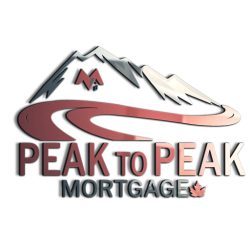Home Insurance…what you need to know…
Thank you to Squamish Insurance for providing this great information.
Obtaining home insurance in the past used to be an easy process…you walked in, gave the property address, told the insurance company how much insurance you needed, and away you went. Things are little more complicated now…
What is the Process?
The process starts with an application. Here is a sample application: Insurance Application and Condo info.
How Have Things Changed?
It’s all about risk assessment. Insurance companies are now assessing the risk of providing insurance depending on how updated the home is, the location, occupancy, and intended use. All of the pertinent questions in the application need to be answered. The points below are important to note especially in cases where you buy a “fixer upper.”
The Specifics:
- If the home is 25 years or older, the house has to have certain updates: roofing, plumbing, wiring and heating, as this is the time limit for them to fail.
- Shingle roofs only last 10-15 years, wood shake roofs 30 years, metal roofs 30 – 50 years depending on the installation and type.
- Plumbing can be copper or plastic but galvanized metal (except for drains) is unacceptable.
- If the hot water tank is less than 6 years old some companies will give a discount.
- All wiring must be copper and be 100 amp service with breakers as we have so many things plugged in that it is a fire hazard if it is any lower than 100 amps.
- Heating; servicing is important; gas furnace must be serviced yearly, oil must have a tank 15 years old or newer, be double walled, and be on concrete blocks.
- Electric baseboards must be checked for proper wiring.
- Wood heat; stoves & fireplace inserts must be installed to manufacturers’ guidelines and be WETT inspected.
- Wood fireplaces are okay.
- Changing bylaws mean potential higher costs to rebuild to meet new guidelines and requirements.
- Your bank or lender will want the first loss payable to them. Often your lawyer or notary will assist with this.
If all of the requirements are met, it is no problem to insure a home, even if there are some not met. Most companies will give time to repair or replace. A replacement cost guide must be done every 3 years to confirm the building is insured to the correct replacement cost. The standard comprehensive homeowners policy provides the following coverage:
- Building value 100%
- Outbuildings 10-15% (wood decks, hot tubs, garden sheds, detached garages)
- Contents 70-80% ( depending on the company)
- Living expenses 20%
- Liability $1,000,000 can purchase up to 5 million.
Absentee Landowner – vacant or rented:
- Most companies will not insure vacant homes unless someone is checking on them and there are furnishings like a seasonal home.
- If it is completely empty, you can get a short term policy to insure until it is sold. It is very expensive due to the high risk of vandalism and property damage.
- A rental unit or home with an absentee landlord will be costly as they will surcharge the policy 45% and you can only get a basic policy with no vandalism coverage.
- If you live within 90 miles they will not surcharge unless you have to take a ferry.
Strata Complexes – do I need insurance?
- If you own in a strata complex, ie a condo or townhouse, the fire insurance for your unit is covered under the strata complex’s policy for the entire building. The cost of this insurance is part of your strata maintenance fees.
- What is NOT covered by the strata fire insurance, is coverage for your own personal contents. You must have a separate policy in place for your own personal items such as furniture, clothes, jewellery, etc.
- Not all situations are straightforward. There could be a fire in your complex where your unit is not affected by the fire per se, but may incur damage from smoke & water. Check with your insurance provider that you have adequate coverage for these circumstances.
Change in Use:
- If you own a home that is owner occupied, and then decide to rent it out, be sure to speak with your insurance provider as the change of use means a change in the material risk of the insurance policy.

